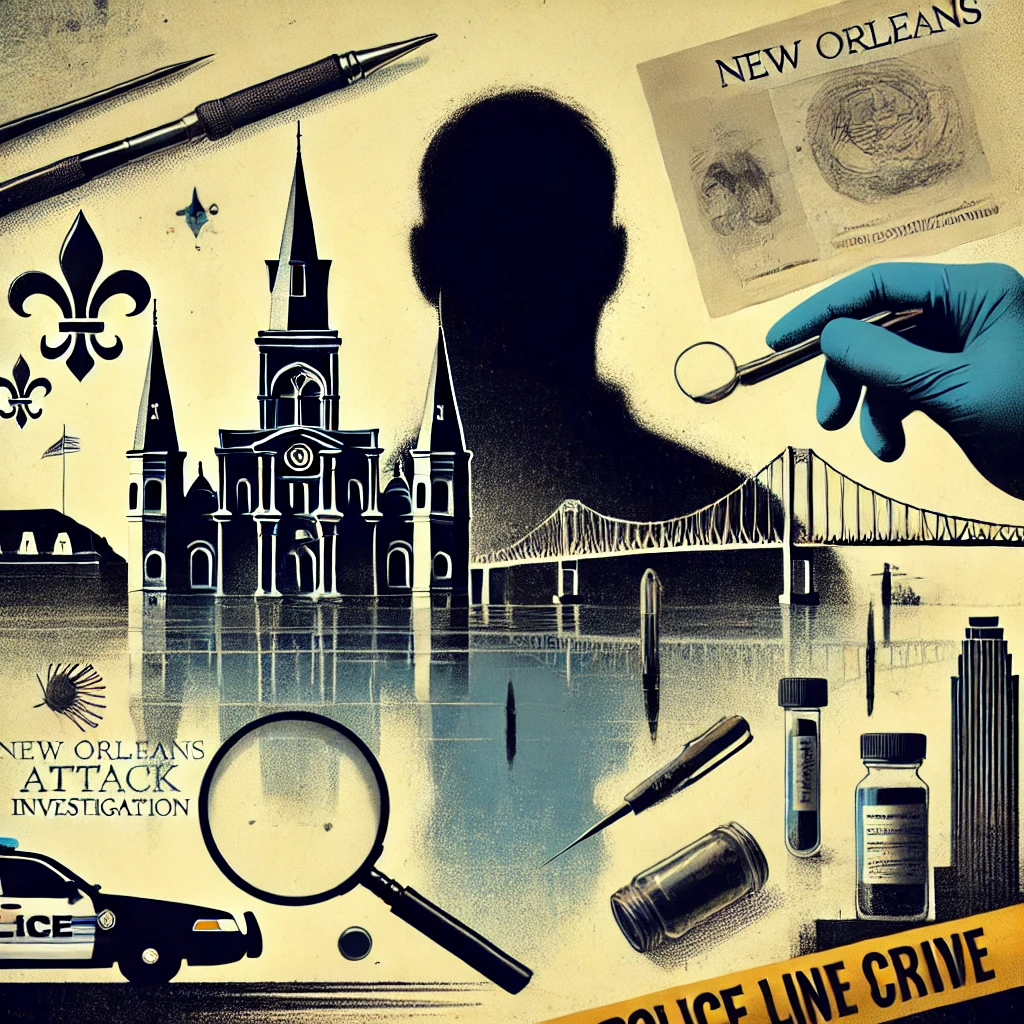The recent attack in New Orleans has sent shockwaves through the community and the nation. As details unfold, it becomes increasingly important to delve into the motives behind such incidents. Understanding these motives is essential for preventing future violence and addressing the underlying factors that contribute to such tragedies.
The Incident: What We Know So Far
On January 1, 2025, a violent attack occurred in New Orleans, claiming the lives of check here and leaving several others injured. The attack took place at (check here), a site frequented by families and community members. Witnesses described scenes of chaos as first responders worked tirelessly to secure the area and provide aid.
Authorities have since identified the suspect as Check here. Reports indicate that the suspect had Check here. Early investigations suggest that the attack may have been motivated by specific motive, such as personal grievances, ideological beliefs, or gang-related activities.
The suspect was apprehended Check here.
Motives Behind Violent Attacks
1. Personal Grievances
Preliminary investigations reveal that the suspect may have had unresolved personal conflicts that escalated into violence. Law enforcement is examining relationships and events leading up to the incident to determine whether personal vendettas played a role.
2. Ideological Extremism
While there is no conclusive evidence yet, investigators are exploring potential ideological motivations. Connections to extremist groups or radical beliefs are being probed as part of the investigation.
3. Mental Health Challenges
Reports suggest that the suspect may have struggled with mental health issues, which could have contributed to the attack. This underscores the critical need for accessible mental health resources and early intervention to prevent such tragedies.
4. Gang Violence and Organized Crime
Given New Orleans’ history of gang-related violence, authorities are also considering whether the attack was linked to organized crime or territorial disputes. However, this angle remains under investigation.
Analyzing the New Orleans Context
Historical Crime Trends
New Orleans has long been grappling with high crime rates. The city’s complex history, including systemic issues like poverty and inequality, has contributed to cycles of violence that are difficult to break. Incidents like this highlight the urgent need for comprehensive solutions.
Socioeconomic Factors
The suspect’s background may provide clues about the role of socioeconomic factors in the attack. Economic hardship, lack of education, and limited opportunities often intersect to create conditions that fuel violence.
Community Relationships
The attack has reignited discussions about the relationship between law enforcement and the community. Distrust of authorities often hinders crime prevention efforts, making it essential to rebuild these relationships through transparency and collaboration.
The Role of Law Enforcement and Community
1. Investigative Efforts
Law enforcement agencies are working diligently to piece together the suspect’s motives and actions leading up to the attack. Surveillance footage, witness statements, and forensic evidence are being analyzed to build a comprehensive case.
2. Community Involvement
Community members have played a vital role in providing information to authorities, demonstrating the importance of collective responsibility. Local organizations are also stepping in to support victims and advocate for stronger preventative measures.
3. Rebuilding Trust
Initiatives such as community policing and public forums can help bridge the gap between law enforcement and residents, fostering trust and cooperation in addressing crime.
Learning from the Tragedy
Policy Implications
The suspect’s actions have prompted renewed calls for policy changes. Stricter gun control measures, improved mental health services, and investments in crime prevention are among the recommendations being discussed.
Proactive Measures
Community-based programs aimed at education, employment, and conflict resolution can help address the root causes of violence. Expanding access to mental health resources is also critical to reducing the likelihood of similar incidents.
Conclusion: Moving Forward
The New Orleans attack is a sobering reminder of the challenges communities face in combating violence. By understanding the suspect’s motives and addressing the broader systemic issues, we can work towards creating a safer and more inclusive society. With coordinated efforts from law enforcement, policymakers, and community members, New Orleans can heal and build a future free from such tragedies.



